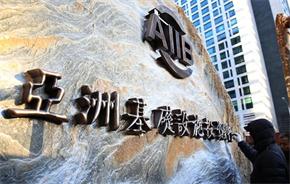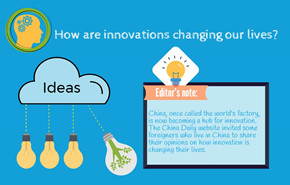Stick to openness while defending Paris Agreement
By Fu Jing (China Daily) Updated: 2017-07-18 07:10After US President Donald Trump said he would pull out of the Paris agreement on climate change, French President Emmanuel Macron replied that he was on a mission to "make our planet great again", a play on Trump's catchphrase, "Make America Great Again".
Macron has met Trump's rejection with a celebration of the signing of the historic agreement, which 153 out of 197 parties to the United Nations Framework Convention on Climate Change have ratified.
In spite of Trump's antipathy to the consensus on climate change, which seeks to mitigate greenhouse gas emissions between 2020 and 2030, Macron has adopted a pragmatic approach by engaging him and trying to bring him back on board, after the other leaders of the G20 agreed in Hamburg that the Paris Agreement is irreversible. Macron has recently planed to organize a climate summit to mark the second anniversary of the signing of the Paris Agreement on Dec 12 in France.
The French president has even been rewarded with positive noises from Trump during his visit to Paris on July 13-14 and the concession that "something could be done" on the issue.
Macron's next task should be to ensure that no further countries follow the US and pull out of the Paris Agreement. For example, Canada followed the US' lead by abandoning the Kyoto Protocol.
But Macron is proving to be a stout defender of the Paris Agreement. Within weeks of his presidency, Macron has shown his pragmatism by actively engaging China, the US, Germany and other global players and extolling the benefits of coordinated action on climate change.
China and France are united in defending the Paris Agreement.
He has also invited US climate researchers to France and even focused on climate finance, which has long been an issue that needed to be addressed by rich countries.
While climate is high on Macron's agenda, the French president has also said he wants to alter the regulation on trade and investment.
Macron needs to be very cautious in shaping his vision of Europe. Right now, he is trying to tighten scrutiny of foreign investment activities in the European Union, which is signing free trade agreements with some of its partners.
For politicians, market protection and protectionism seem very similar but the former is acceptable, while the latter is one step too far. Macron must accept the reality that openness has already benefited his country, the EU and the world by promoting technology transfer, capital injection and inward investment. For the EU, its priority should be to trim bureaucracy, instead of beefing up its regulations.
The US also scrutinizes investment in the name of national security. But this mainly works as a barrier and sometimes a useful card to play.
The EU, a global leader of climate protection, free trade and an open economy, should not follow such old-fashioned practices. What's more, the essence of the Paris Agreement is global development paradigm change, and ample finance and technology transfers from the rich countries can help less-developing countries avoid development traps and environmental woes.
France has played a major role in defending international cooperation on climate change. It should approach trade with the same spirit. If so, the numerous goals in the Paris Agreement could be turned into reality faster than expected.
The author is deputy chief of China Daily European Bureau.
fujing@chinadaily.com.cn












